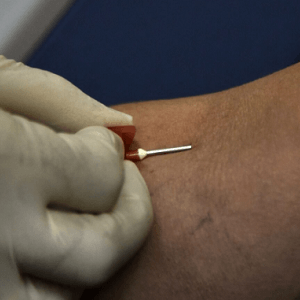Black patients are at a disadvantage with current Alzheimer’s blood tests, which were found to be less accurate for them compared to white patients, according to a study led by Dr. Darshali Vyas of Massachusetts General Hospital. The study, published in the journal Neurology, indicates that three out of four experimental blood tests for Alzheimer’s disease showed different performances in Black versus white individuals. This discrepancy raises concerns about the reliability of these tests for Black patients, who already face a 40-percent higher rate of Alzheimer’s after age 65 compared to White seniors.
The research underscores the broader issue of racial disparities in medical diagnostics and the underrepresentation of Black individuals in clinical trials. Black participants in the study were more likely to have conditions like high blood pressure and diabetes, which may affect the accuracy of Alzheimer’s blood tests. The study did not pinpoint the exact reasons for the varying results but suggested that the presence of other health conditions could be a factor.
Alzheimer’s advocates are calling for more diversity in clinical trials to ensure that diagnostic tools are effective across different racial and ethnic groups. This push is part of a larger effort to combat the racist practices historically present in neuroscience and to develop more inclusive diagnostic criteria for Alzheimer’s and related dementias.
The study’s findings highlight the need for medical research that reflects the diversity of the population, as the current reliance on data from predominantly white cohorts does not adequately represent the genetic and environmental variations across races and ethnicities.
“Testing for Racism: Here’s why Alzheimer’s tests won’t necessarily work in Black patients” by Simon Spichak on the Being Patient website (February 2, 2024)



